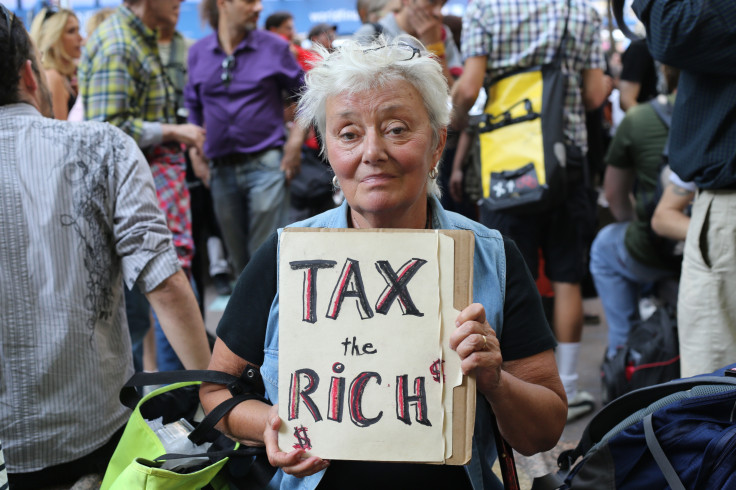
The richest people in the world want governments to tax their extreme wealth so they can help address economic inequality.
Over 250 billionaires and millionaires, including people like Disney heir Abigail Disney and Valerie Rockefeller, a member of the wealthy Rockefeller family, have written an open letter calling for a wealth tax.
The letter addresses the political representatives of various countries meeting for the World Economic Forum (WEF) in Davos this week. The world's richest gather in the city every year for the WEF meeting, which is attended by political leaders, corporate executives, and the super-rich.
"Our request is simple: we ask you to tax us, the very richest in society. This will not fundamentally alter our standard of living, nor deprive our children, nor harm our nations' economic growth. But it will turn extreme and unproductive private wealth into an investment for our common democratic future," reads an excerpt from the letter.
The development comes days after an Oxfam report revealed that the five richest men in the world have doubled their wealth since 2020.
The report found that the wealth of five people--Tesla CEO Elon Musk, Amazon founder Jeff Bezos, Oracle founder Larry Ellison, and LVMH head Bernard Arnault and his family-- jumped to $869 billion in November 2023 from $405 billion in March 2020.
In stark contrast, the world's poorest 60 per cent, comprising nearly 5 billion people, have experienced financial losses during the same period.
"If current trends continue, the world will have its first trillionaire within a decade but poverty won't be eradicated for another 229 years," Oxfam said.
"People worldwide are working harder and longer hours, often for poverty wages in precarious and unsafe jobs. Across 52 countries, average real wages of nearly 800 million workers have fallen. These workers have lost a combined $1.5tn over the last two years, equivalent to 25 days of lost wages for each worker," the report says.
Wealth inequality has become a highly divisive issue, with experts calling for policies that address the root cause and promote a fairer distribution of resources. Oxfam has called for higher taxes on the super-rich. It has suggested several measures to tackle the crisis, which include introducing one-off solidarity wealth taxes to end crisis profiteering.
Rich people often pay 3 per cent or less of their income in taxes. Calls to tax the rich have increased in the last few years. According to experts, a 2 per cent tax on extreme wealth can raise $2.5 trillion a year, which can be used to pay climate reparations to countries in the Global South.
"Just imagine what £22bn a year invested in public services and infrastructure could pay for; improving the lives of every one of us who live in the UK and providing our elderly, young and vulnerable with the care and support they need and deserve," said Julia Davies, a founding member of Patriotic Millionaires UK, an organisation of British millionaires advocating for a wealth tax.
The situation is no better in the UK. Last year, an Oxfam report claimed that the richest 1% grabbed around half of all new wealth created globally since 2020. In the UK, this small section is wealthier than 70% of the population combined.
The report, called Survival of the Richest, highlighted the disparity between the rich and the poor. A similar report said that the number of billionaires in the UK witnessed a 20% jump during the coronavirus pandemic.
More than 11 million people in the UK faced hunger in the past year, according to research conducted by the food bank charity Trussell Trust. The trust conducted a survey between May and August last year for its report. Its analysis shows how the ever-rising cost of living has hit Britain's poorest households hard.
Another study by the Institute of Development Studies (IDS) at the University of Sussex has revealed that around 14 per cent of the UK population is suffering from food poverty, per a report in Barrons, an American weekly newspaper.







